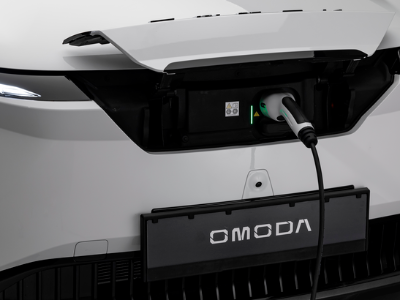
Charging an Electric Car at Home
Charging an electric vehicle (EV) at home is not only the most convenient option, but also the most cost-effective way to ensure your car is always ready to go. On average, a full charge costs approximately £13, making home charging significantly cheaper than relying on public charging stations. Most EV owners prefer to charge their vehicles overnight, taking advantage of off-peak electricity rates and waking up each morning to a fully charged battery.
Key points to consider:
The average domestic electricity rate across the UK is around 24.5p per kWh.
Fully charging an OMODA E5 will cost approximately £15, depending on regional electricity rates. This provides an estimated range of 257 miles on a full charge.
For even greater savings, many EV drivers switch to dual-rate electricity tariffs specifically designed for electric vehicle owners. These tariffs offer lower rates during off-peak hours, significantly reducing the cost of charging your car at home. By making this switch, you could cut your charging expenses even further, making EV ownership even more affordable in the long run. Contact your energy provider to see if they offer an overnight EV rate, and if they don’t you might want to look at comparison websites such as Money Saving Expert.
Scenario: The Cost Savings of Charging an EV at Home vs. Petrol/Diesel Costs
Meet Sarah:
Sarah drives a petrol car with a fuel economy of 35 MPG (8.07 L/100 km) and currently pays £1.46 per litre for fuel. She drives 12,000 miles per year, which costs her £2,275.64 annually in fuel expenses.
Sarah is considering switching to an electric vehicle (EV) and charging it exclusively at home. She has access to a low off-peak electricity tariff of 7p per kWh, which is available from Octopus Energy, E.ON, Next, and Good Energy. Her chosen EV has an efficiency of 280 kW/mile (3.57 miles per kWh), meaning she can maximise savings by charging overnight.
Annual Cost Comparison
Fuel Type Cost per Mile Annual Cost (12,000 Miles)
Petrol Car £0.1896 £2,275.64
Electric Car (Home Charging at 7p/kWh) £0.0196 £235.20
• Annual Savings: £2,040.44
• Daily Savings: £5.59
• EV charging can be almost 10 times cheaper per mile.
The Financial Impact
By switching to an EV and using a low-cost overnight charging tariff, Sarah would save £2,040.44 per year. Over five years, this adds up to £10,200, which could cover insurance, maintenance, or even contribute towards a new EV.
Conclusion
For drivers like Sarah, who have access to a low off-peak electricity tariff of 7p/kWh from Octopus, E.ON, Next, and Good Energy, switching to an EV can result in substantial long-term savings. While an EV's upfront cost may be higher, the ongoing fuel savings significantly outweigh petrol or diesel costs, making it a smarter financial decision in the long run.
If you would like to talk to us about switching to an all-electric, or hybrid vehicle please contact us on 01205 725700, you can also book a test drive in our fully electric Omoda E5 or petrol hybrid Jaecoo 7.


